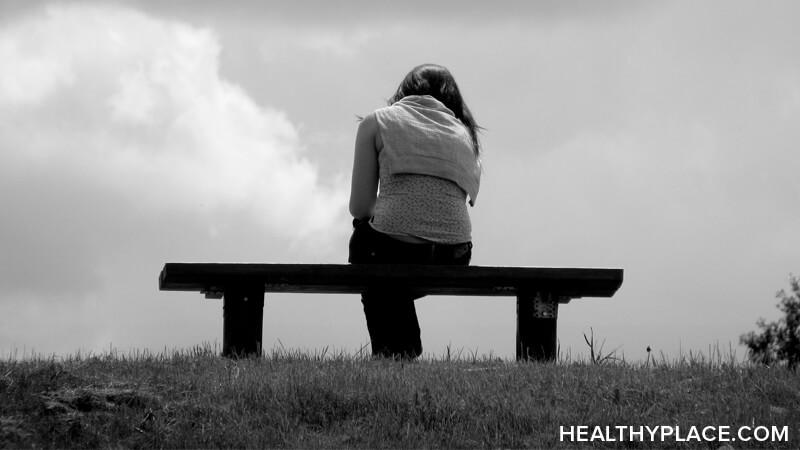Self-Harm and Feeling Lonely: A Cycle of Self-Injury

Self-harm and feeling lonely create a cycle that perpetuates self-injury. Self-harm itself is an isolating act. It has a way of both causing feelings of loneliness and of reinforcing them. This is one of the reasons self-harm can go on as long as it does, sometimes even for decades: it keeps itself hidden away.
How Feeling Lonely Can Lead to Self-Harm
Feeling lonely might cause you to self-harm. If you are resorting to self-harm, chances are you are faced with a problem or set of problems that, for whatever reason, you feel you cannot share with your friends or family -- at least, that is how you may have felt when you first turned to self-harm. Self-harm presents itself as a solution when no other solution seems to exist.
Feeling alone in dealing with your problems and unable to reach out to others gives self-harm a prime window in which to take advantage of your vulnerability. In this way, self-harm is borne of feeling lonely.
How Self-Harm Can Make Feelings of Loneliness Worse
Self-harm makes you feel lonely because it demands that you hide an important part of yourself and of your life from others, including those who are closest to you. It wants to be kept secret. It wants to live in unseen corners, controlling you with the threat of exposure.
Being open about self-harm is hard. For one, you risk having it taken away from you by concerned outside forces. Second, there is a lot of cultural baggage attached to it that may elicit feelings of shame and embarrassment. Third, by opening yourself up to the world in this way, you run the risk of being completely misunderstood. The people whose opinion you care about the most may not understand self-harm in the way that you do and may approach it with judgment or unhelpful platitudes that miss the point entirely, and in a way that is more painful to bear than even the shame and embarrassment of social taboo ("The Stigma of Self-Injury").
Self-harm manipulates all these fears of exposure to keep you at a safe distance from everyone around you, thus ensuring that it is never found out and that your feelings of loneliness due to self-harm increase.
How Self-Harm Tricks You Into Staying Lonely
So first, self-harm pretends it is the only way to deal with the pain of feeling lonely. Then, self-harm makes your loneliness worse by isolating you from others. Finally, left alone with only the self-harm that isolated you, it can start to feel like the only meaningful relationship you have in your life.
In other words, self-harm takes away everything in your life except for itself, tricking you into keeping it around out of fear of ending up completely alone without even self-harm to dull the loneliness.
Basically, self-harm is a trap.
The sooner you can recognize that self-harm feeds off you feeling lonely, the sooner you can gather the confidence to leave it behind and create more meaningful relationships with others as well as with yourself.
APA Reference
Chang, K.
(2018, September 19). Self-Harm and Feeling Lonely: A Cycle of Self-Injury, HealthyPlace. Retrieved
on 2026, March 4 from https://www.healthyplace.com/blogs/speakingoutaboutselfinjury/2018/9/self-harm-and-feeling-lonely-a-cycle-of-self-injury